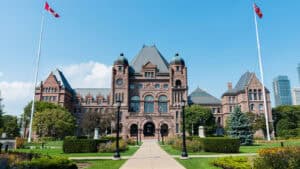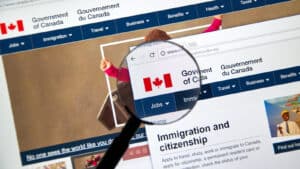
Canada Extends Pilot Allowing Undeclared Family Members To Be Sponsored For Immigration
Canada has extended a public policy allowing undeclared family members to be sponsored for immigration. The program came into effect on September 9, 2019, in

Canada has extended a public policy allowing undeclared family members to be sponsored for immigration. The program came into effect on September 9, 2019, in
Operational Bulletin 548 – September 06, 2013 Specific Directives for Processing Temporary Resident Visa Applications under the Foreign Missions and International Organisations Act for Spouses,
Operational Bulletin 229-A – April 23, 2012 Pilot Project for Foreign Spouses and Dependent Children of Highly Skilled Canadians or Permanent Residents Returning to Work

Discover how Ontario’s latest immigration draw targets skilled trades occupations under the OINP Employer Job Offer: Foreign Worker stream. Explore the eligibility requirements, NOC codes, and invitation details for aspiring immigrants to Ontario.

Discover the latest trends in spousal sponsorship immigration to Canada. In February, there was a 21.7% decline in new permanent residents compared to January, according to Immigration, Refugees and Citizenship Canada (IRCC). Learn more about recent numbers and projections for 2024. Read further for insights on immigrant children’s success in higher education, recent provincial draws, and key sponsorship details.

The April 23 draw saw a minimum Comprehensive Ranking System (CRS) score of 529 points – 20 points lower than the all-program draw before that, which was conducted on April 10, 2024, had a minimum CRS score of 549 points, and had issued 1,280 ITAs

Virgin’s cell phone plans are some of the most affordable in the country, from 250MB per month to unlimited data. Another great feature of most of Virgin Plus’ plans is that they offer unlimited international texting, so you can always stay connected with family and friends overseas.

Explore the shifting political landscape among recent immigrants to Canada, as revealed by a recent Leger poll. Discover insights into newcomers’ views on immigration targets, political affiliations, and the influence of ethnic communities on Canadian politics. Gain valuable perspectives on the growing support for Conservatives, contrasting with the traditional Liberal stronghold, and the implications for future elections.

Discover the latest immigration updates from Nova Scotia’s Immigration Department, including the indefinite pause on applications from the food services and accommodation sector. Learn about alternative programs, processing times, and essential skilled labor options, ensuring prospective immigrants stay informed and explore viable pathways to residency in Nova Scotia.